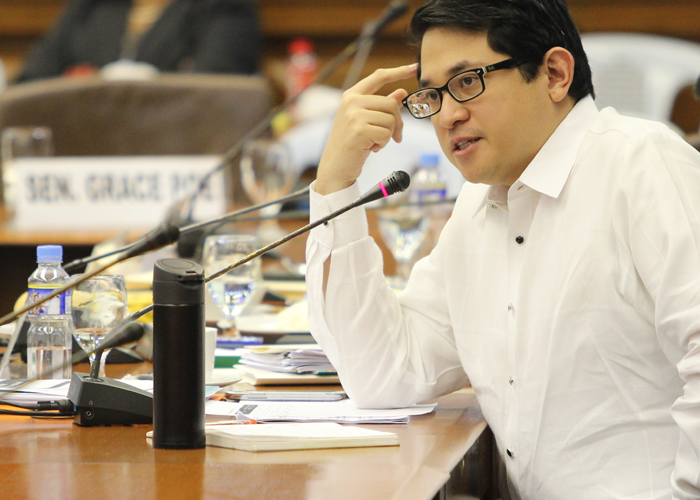Teachers in Perpetual Cycle of Debt! – Sen. Bam
Despite being hailed as modern-day heroes for inspiring and shaping the youth to become productive citizens of the country, teachers still experience financial woes because of their meager salaries and small take-home-pay.
“With the increasing cost of living, teachers tighten their belts to get by on their modest salaries. They turn to loan agents and loan sharks, government and private, to make ends meet,” said Senator Bam Aquino.
“Worse, come pay day, they have little income to take home because they have automatic deductions from loans and other payments, leaving them little for their daily sustenance,” the senator added, “which forces them to borrow again and having them buried neck-deep in debt.”
Aquino said many teachers find creative means to augment their meager take-home pay by selling meat, beauty and health products.
“How can these critical players in nation building impact the next generation if they are bombarded with financial woes,” Aquino emphasized.
To address this problem, Aquino has filed a bill that will set a minimum net take-home pay for teachers and other government employees.
“This bill seeks to ensure that teachers and other government employees are able to meet their families’ basic needs and reduce their need to take on debts,” Aquino said of his Senate Bill No. 2333.
Under the bill, teachers and other government workers will be assured of a take-home pay of at least 30 percent of their monthly salary.
“Setting a minimum take-home amount allows an appropriate control for teachers to be able to properly budget for their households expenses,” he said.
Aquino said the measure contributes in the efforts of leaving no one behind, especially the country’s public servants, in the progress and development of the country.
Under the measure, authorized deductions are prioritized in the event that total authorized deductions will reduce the government employee’s mandatory minimum monthly take-home pay.
Any deficiency in loan payments of government employees as a result of the mandatory minimum take-home pay may be addressed through direct payment arrangements to be voluntarily made by the employee to the lending institutions.

Recent Comments